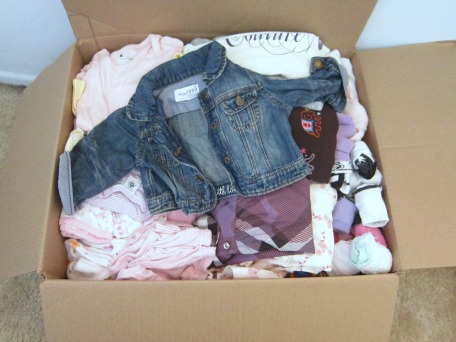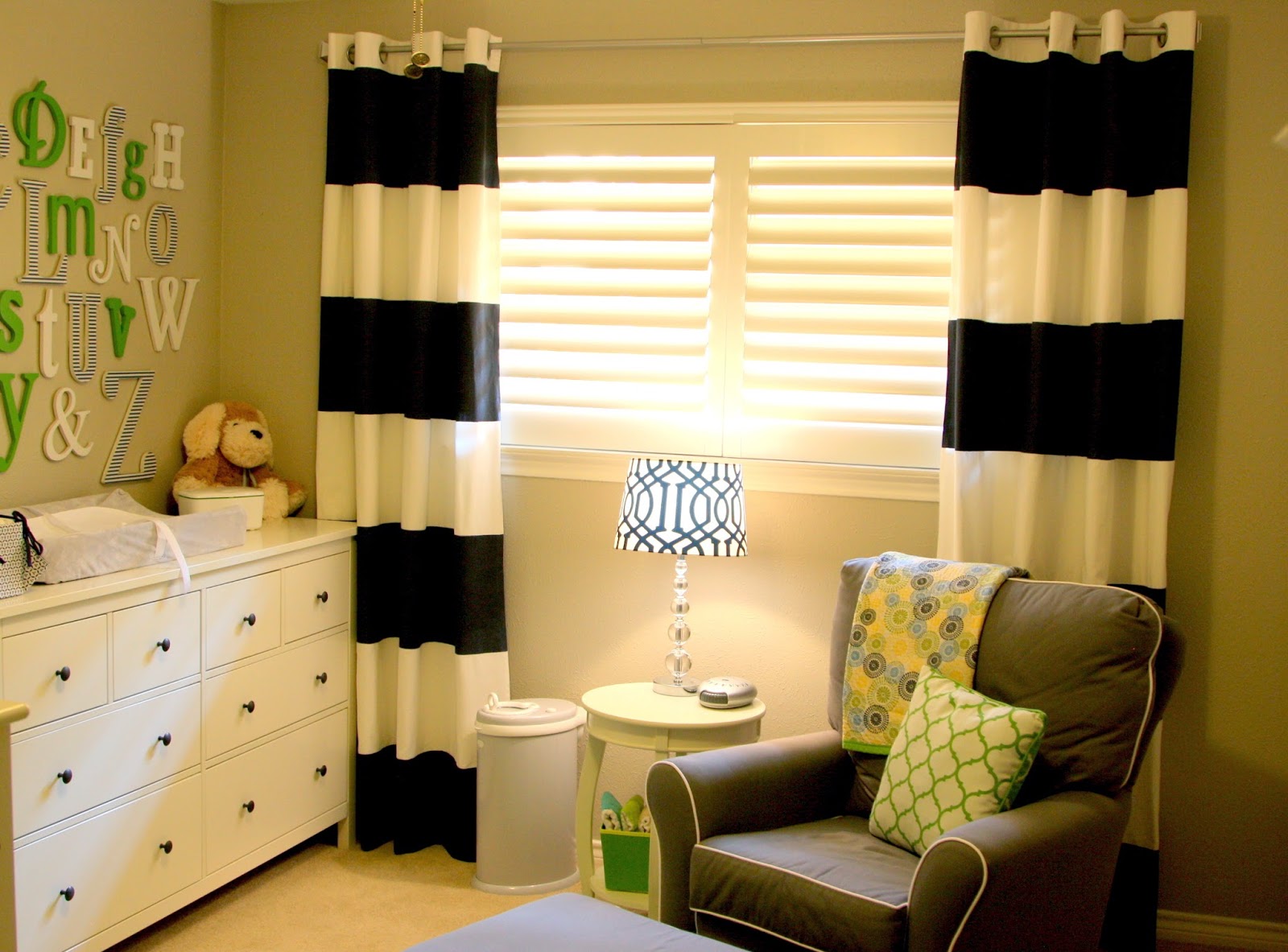Having a baby is EXPENSIVE! However, there are a few ways you can save money getting ready for your baby's arrival. Keep in mind that everyone has their own idea of "budget-friendly", so you can implement these tips to the degree that is appropriate for your own budget:
 |
| Source |
1. Buy Used
Take advantage of resale stores, garage sales, Craigslist, or consignment shops to buy used items. Many baby items get used for such a short period of time before the baby outgrows them that you can find lots of baby things in like-new condition for a fraction of the retail price! I had the best luck at resale stores - if you're local to the DFW area, Once Upon a Child was my favorite (I visited 3-4 different locations).I bought nearly all of my baby's clothes in newborn, 0-3 month, and 3-6 months sizes from a resale shop - most of them looking brand new, and some of them even had the tags on! Babies fit into each size for such a short period of time that I couldn't justify buying clothes brand new! Sign up for your local resale stores' email lists to be notified of sales and clearance days; I waited until my resale shop had $1 or $0.50 clearance items and stocked up!
I also purchased several of the big-ticket items from the resale store or Craigslist, including a Chicco Keyfit Caddy snap-and-go stroller, a Fisher Price Snuggabunny swing, and an Ergobaby carrier with infant insert.
 |
| Source |
2. Accept Hand-me-downs and Borrowed Items
There's no shame in borrowing items from friends or accepting hand-me-downs offered to you! A friend from church had a son 6 weeks before me and let me borrow all of his newborn-sized clothing, which was a blessing because I had only bought a few newborn-size clothes and my son is a major spitter-upper! Another friend has a daughter 6 months older than my son and let me borrow her Snoogle pregnancy pillow, Eddie Bauer travel bassinet, and Chicco travel activity mat. She also lent me several of her baby and pregnancy related books, like Baby Bargains and What to Expect When You're Expecting.Just make sure to return the items in the same condition you received them, and pay it forward; a few weeks after my son was born, I packed up all my maternity clothes and lent them to a similarly-sized friend who's due in November.
3. Register for and Decorate the Nursery in Gender-Neutral Items
It's so tempting to get everything in pink or blue for your first baby! However, by sticking to neutrals like yellow, green, navy, or gray, especially for more expensive items (like the carseat and stroller), you'll be able to re-use them if you have another baby of the other gender in the future. I picked white furniture and gender-neutral gray, navy, and white décor for my son's nursery, and used green as an accent color for less-expensive items; if I have a daughter someday, I'll just switch out the green accents for pink. I also registered for a green carseat and a navy stroller that are gender-neutral. Don't worry, you'll get plenty of gender-specific clothes as gifts, so you'll end up with lots of pink or blue!4. Stockpile Diapers and Wipes During Your Pregnancy
If you run out of diapers or wipes after the baby's born, you'll be stuck paying full retail price - even worse if it is late at night and you have to buy them at the gas station or grocery store, where they are even more overpriced! Learn how to play the drugstore game to combine coupons and sales to buy diapers and wipes for rock-bottom prices; I've had the best luck at CVS and Target. You should be able to save at LEAST 50% on diapers and wipes this way. Contrary to logic, you can usually get the best deals buying the smallest packages of diapers and wipes, since the value of the coupon is divided over fewer diapers (making each diaper cheaper than if you had purchased a large box).My goal was to buy the jumbo packs of diapers (which have 30-40 diapers, depending on the size) for $5 or less, and normal-size boxes of wipes (64-72 wipes) for $1 or less. If you start early enough, you can buy all the diapers and wipes you'll need for baby's first year, so you won't have to worry about couponing and deal-hunting with a newborn in tow. If you end up with too many in one size, most stores are good about letting you do an even exchange (same brand, different size) without a receipt; if all else fails, Walmart will take anything back!
5. Use Coupons and Watch for Sales for all Baby Purchases
Don't buy baby items without a coupon! Sign up for the email, text, and mailing lists for Babies R Us and Buy Buy Baby; they frequently send out 20% and $5 off coupons. I never buy anything at either store without a coupon! These two stores will accept each other's coupons, too, and Babies R Us will also price match a competitor's advertised price. Buy Buy Baby will accept non-expired Bed, Bath & Beyond coupons as well (since they are owned by the same company). You don't have to do multiple transactions - you can hand over as many coupons as you have items in one transaction. Watch coupons.com for diaper and wipe coupons, and also sign up for Pampers and Huggies mailing lists to get additional coupons from the manufacturer.For big-ticket items, like carseats, stollers, and nursery furniture, use coupons and/or watch for a good sale. You can often buy these items on Amazon for a lower price than local retailers; additionally, depending on the brand, you can usually use a Babies R Us or Buy Buy Baby 20% off coupon on these items, which is a significant savings on more expensive items! I used 20% off coupons on both my glider and ottoman, purchased at Buy Buy Baby.
 |
| Source |
6. Avoid Buying Items Marketed as "Baby"
There are some things (like cribs, baby clothes, and strollers) that you have to buy in the "baby" department; however, for some baby items, there are comparable non-baby items in other departments that may be cheaper purely because they are not marketed as "baby". (This is similar to how anything "wedding" related is automatically overpriced!) For instance, I use a $5 dish drying mat from Bed Bath & Beyond to dry bottles and pump parts; you can also find a knee pad in the garden area for much cheaper than the pads sold by baby stores for bathing baby.
7. Don't Open It Until You Need It
After your showers, it is so tempting to open and wash everything you receive so you feel ready for baby's arrival! You'll need to do this for the necessities, but try to avoid opening and washing everything until you know you'll need it. I washed a few clothes in the newborn size but left the tags on some clothes I received as gifts until I knew whether or not my son would fit in them (he was expected to be a large baby). Same with the bottle warmer, bottles, pacifiers, etc. - I ended up returning many of these items when my son preferred a different brand (so always start with the cheapest!) Additionally, I got a lot of items I had registered for free during my hospital stay (spare breast pump parts, pacifiers, baby comb and brush, thermometer, etc), so I didn't need the ones I had purchased. Return these items for store credit! |
| Source |
8. Take Advantage of Income Tax-Advantaged Accounts
If your employer offers an FSA (Flexible Spending Account) or HSA (Health Savings Account) as part of your medical insurance, take advantage! Using these accounts lets you use pre-tax dollars to pay for medical expenses, so you'll end up saving the equivalent of your income tax rate (average 25%).The birth of a child qualifies as a "life event" which allows you to make changes to your insurance plan mid-year, outside of the normal open enrollment period. If you didn't put enough money in your FSA at the beginning of the year, add more now! I wasn't sure exactly how much my hospital delivery bill would end up costing, and I didn't want to set too much aside in my FSA account since the law is a "use it or lose it" policy. However, you'll have 30 days after the birth of your child to make changes to your insurance plan; during this 30 day window, I added up all of my hospital bills and increased my FSA contribution election to equal what I owed.
The same applies for daycare; if your employer offers it, enroll for a dependent care FSA account to cover qualified daycare costs. Again, by using pre-tax dollars, you'll save the equivalent of your income tax rate on these expenses, up to the annual maximum limit.





No comments:
Post a Comment